Trapped Britons say Foreign Office won’t help them escape Sudan warzone
Foreign nationals, including Brits, have been left to fend for themselves in Khartoum as governments, aid agencies say it is too dangerous to run evacuations
A British man trapped in Sudan's capital for almost a week has said the Foreign Office has done nothing to evacuate citizens, despite the ferocious bombing and gunfire.
The father-of-two, who asked for his name to be withheld for his safety, is sheltering in central Khartoum with his wife and children as well as 20 other foreign civilians.
The group, who are mostly aid workers, have been trapped in the epicentre of the fighting since Saturday when the fiercest clashes erupted between the country’s two top generals.
They are among several aid workers, western diplomats, UN officials and Sudanese civilians The Independent has spoken to over the last week who have resorted to begging for help on social media or relying on local volunteers, to try to secure supplies or to find a way out.
Despite the escalating violence and dwindling supplies, the Foreign Office had done little to help, the British family said.
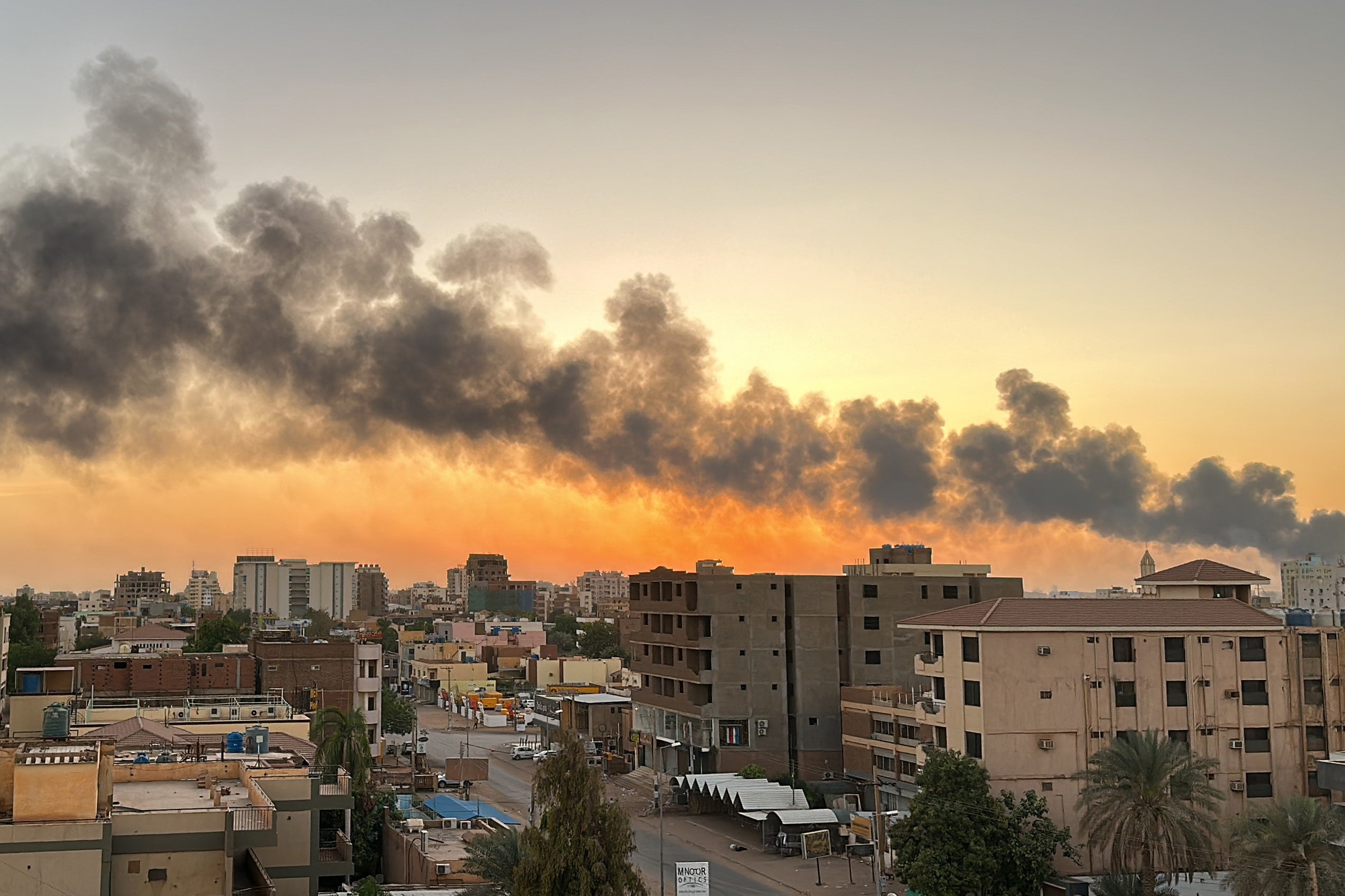
On Friday morning, they were told to register their names in a list of those needing to be evacuated - but, after six days, “that’s it”, he told The Independent.
Now they have just one or two weeks of food supplies left and “bombs are dropping and you hear shooting every day”.
“I was told to stay in place. Then I heard nothing until day four… I called the Embassy again, which said, ‘I can assure you conversations are happening at the highest levels,’” he said, adding he has been advised to register for updates from the travel advice page for Sudan on the Government’s website, which urges people to not travel to the country.
“What annoys me is every other government is doing things - but ours is clearly not.”
“I do think they’ve now been woken up and are alert to it. I just hope now that they've woken up they actually do something,” he added.
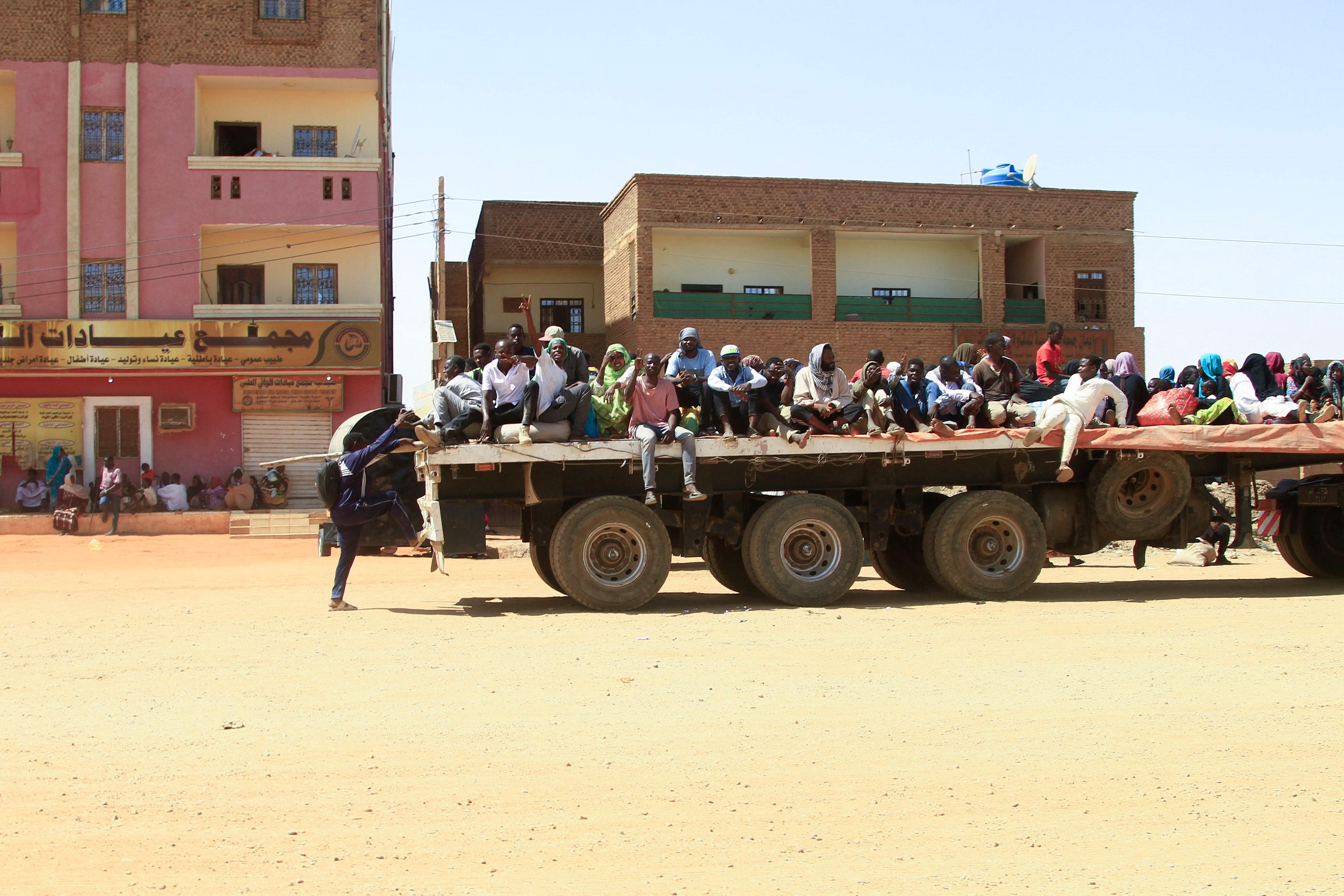
Last year the Foreign Office said it had “lessons to learn” from the chaotic 2022 evacuation from Afghanistan following the withdrawal of international forces.
Ministers admitted a catalogue of errors over its handling of Britain’s exit from Afghanistan, and shut the door on many Afghans who helped the UK prior to the Taliban takeover.
The Independent since revealed that desperate Afghans in hiding from the Taliban were told that they could only come to safety in Britain if their documents were approved by the fundamentalists they were trying to flee.
An Afghan war veteran who served alongside British armed forces is among those who have fled to the UK on small boats and are now being threatened with deportation to Rwanda.
This newspaper is now calling for UK to support Afghan war heroes who served alongside Britain.
Over 400 people have already been killed and thousands have been injured since ferocious fighting erupted between Sudan’s military and rival paramilitary the Rapid Support Forces (RSF) for control of the country.
At the heart of the conflict are two generals: Sudanese army chief General Abdel-Fattah al-Burhan and RSF’s leader General Mohamed Hamdan Dagalo who initially joined forces in a coup in 2021 just two years after the ouster of long-term autocrat Omar al-Bashir.
The pair became heads of the country’s new ruling Sovereign Council. However, tensions spilled into violence as they clashed over details of a transition agreement to civilian rule that was supposed to be signed last month and would have seen RSF forces merged into the military.
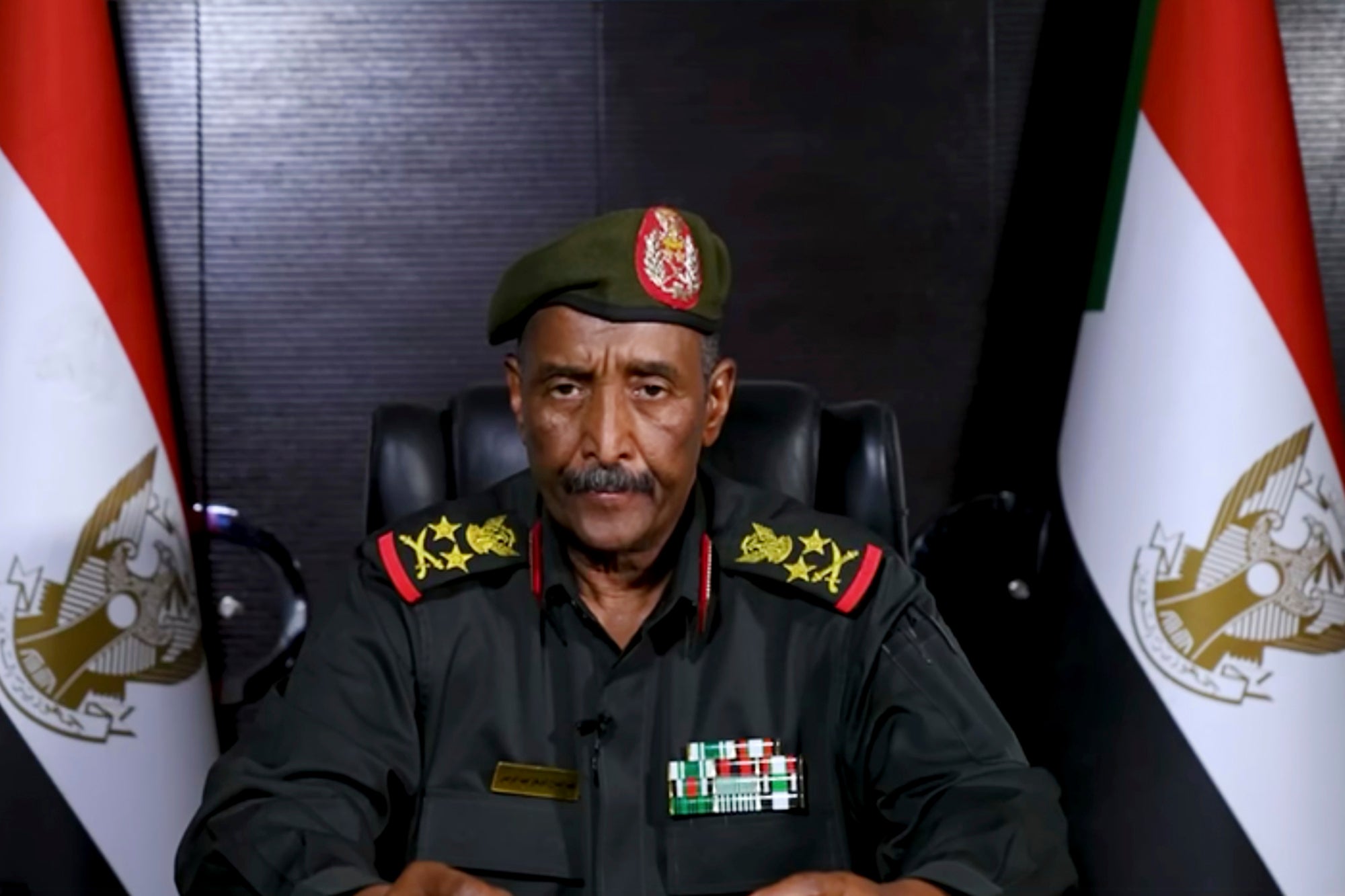
Despite repeated promises of a humanitarian ceasefire, most recently for the Muslim holiday of Eid al-Fitr, foreign governments and international aid agencies have been paralysed to do anything because of the escalating violence.
On Friday the United States, South Korea, and Japan reportedly deployed troops or military planes to a US base in Djibouti, on the Gulf of Aden, to await the possibility of evacuation of their civilians. The Netherlands has meanwhile dispatched its own to Jordan.
But it is unclear if any attempt to evacuate will go ahead.
Two days ago the German military was forced to abort a mission to evacuate around 150 citizens due to renewed clashes, according to Spiegel news magazine.
The International Committee of the Red Cross (ICRC) meanwhile said that they have been receiving calls “every day” from people and organisations seeking help to get to safety.
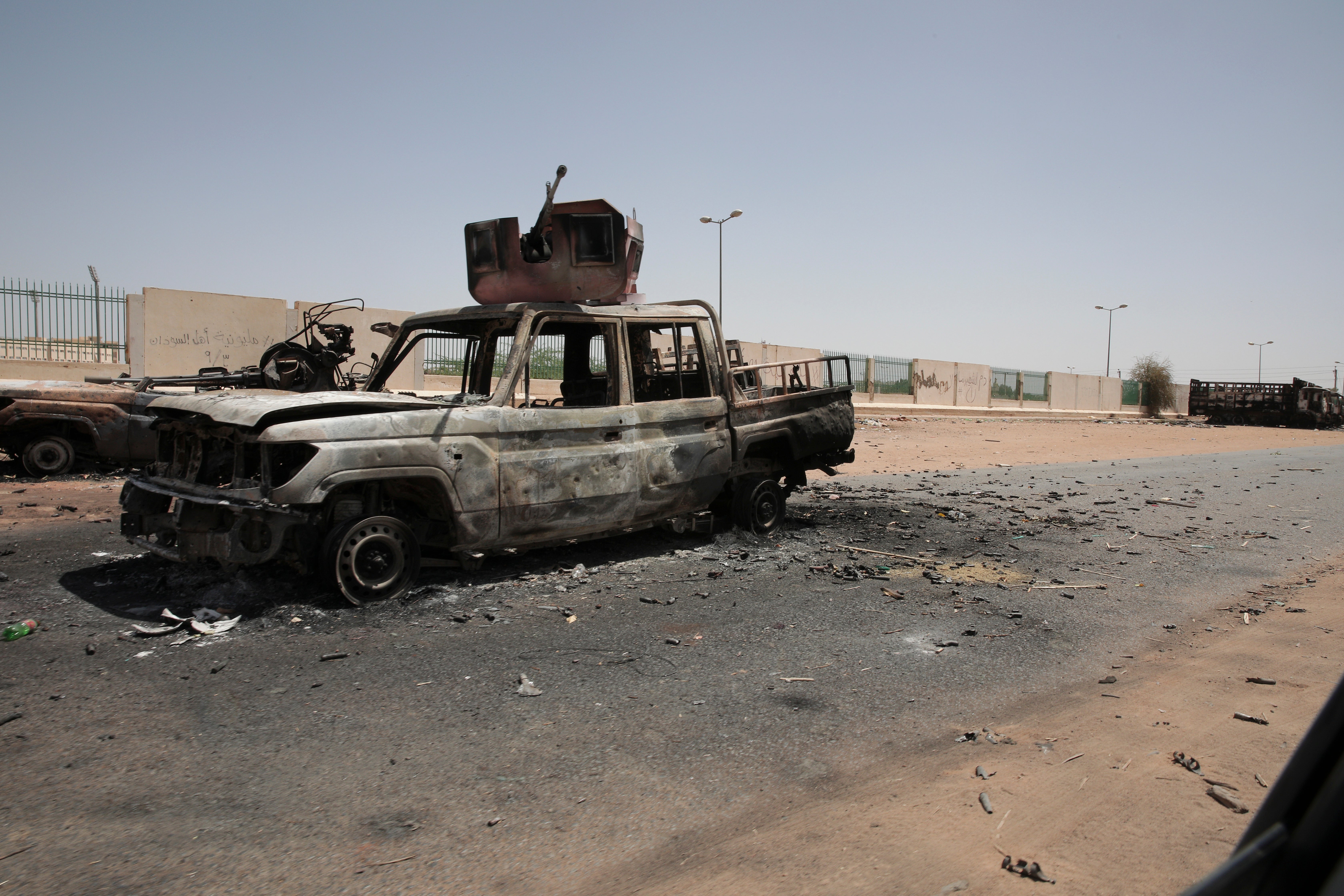
But they have not even been able to deliver aid and medical supplies to the capital as they have not been granted "the necessary security guarantees we need to operate safely.”
“We also know that hospitals are running dangerously low on medical supplies and ambulances are unable to move around safely to help the wounded,” an ICRC spokesperson told The Independent.
“The ICRC is not carrying out evacuations in Sudan and we have no plans at this time to do so. What people need more than anything right now is a meaningful pause in hostilities.”
This has left civilians effectively fending for themselves.
The British father trapped in a school told The Independent that his biggest concern is that the phone companies have announced the phone lines could soon go down, which would make coordinating an evacuation infinitely harder than it already is.
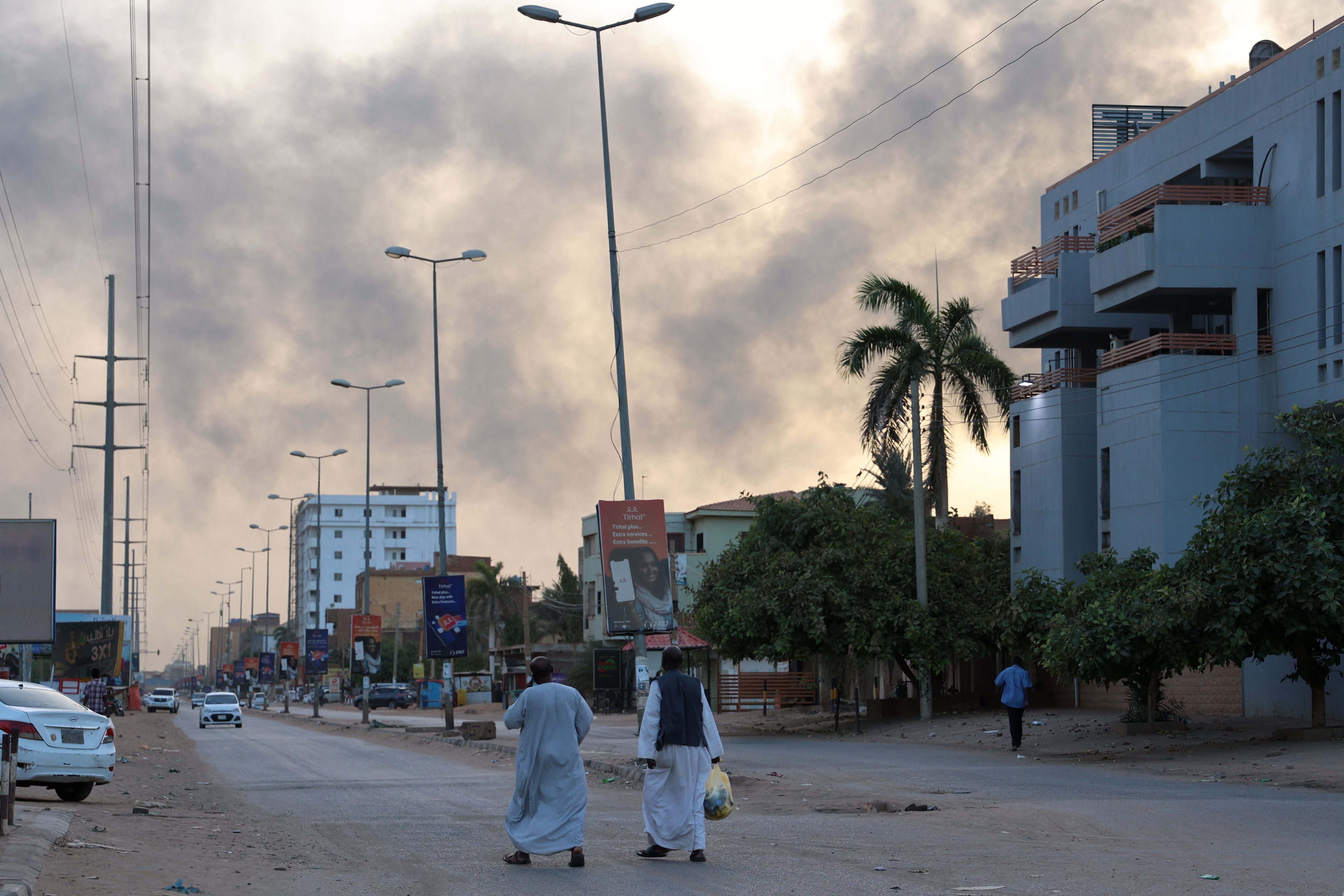
He expressed frustration at the UK’s lack of preparation.
“It’s nonsense that something like this was unexpected. We were all hoping it wouldn’t happen - but it was definitely a possibility. It should’ve been planned for,” he said.
“We thought they wouldn’t have been so stupid, but they have been. We’re stressed and would like people on top of it, and they’re clearly not.”
The Independent also spoke to several other Westerners including UN officials, who declined to comment directly but described taking to social media to beg for help as no assistance from outside has come.
Sudanese volunteers have attempted to answer some of those calls by setting up Telegram groups with possible evacuation points and routes.
Activists part of pre-existing neighbourhood initiatives called “resistance committees” have also begun coordinating evacuations and have risked their lives to get mobile phone credit, food and water for those sheltering in place.
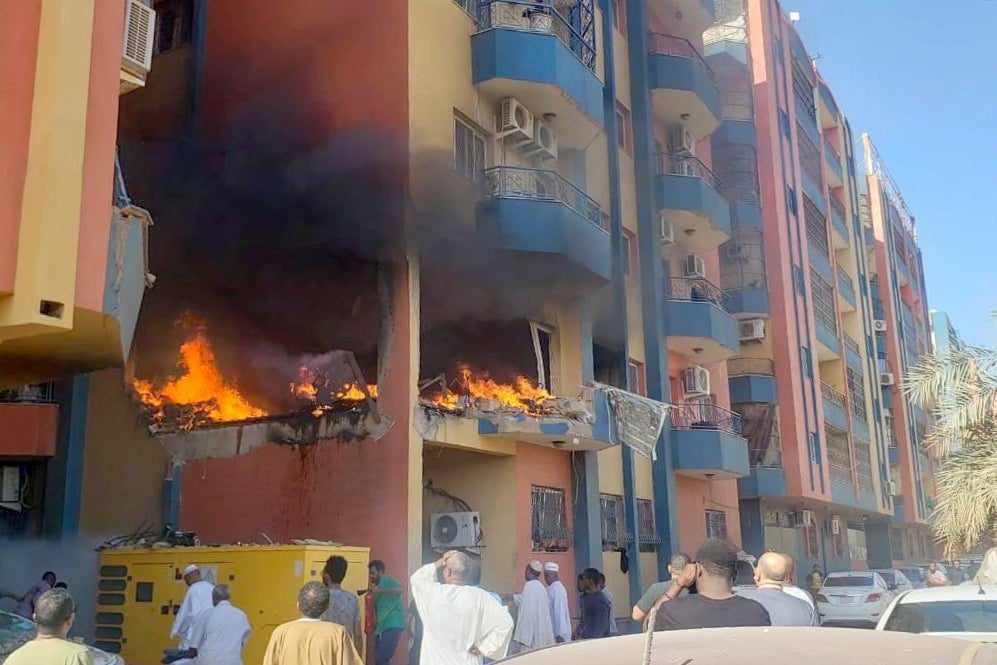
But they told The Independent it had become “near impossible” to evacuate as fighting has intensified, citizens have been being randomly shot or arrested, and the evacuation vehicles have being stolen by gunmen. RSF soldiers have also started occupying homes, forbidding citizens from leaving, one volunteer added.
“To make such a move we had to beg RSF soldiers to let us leave. On the way you might be stopped by at least 4 checkpoints but often it is much more,” he told The Independent.
“They are randomly shooting citizens, snipers are on all buildings, there is continuing gunfire, assault, and airstrikes.”
A UK Government spokesperson said: “We are coordinating across Government and with our international partners to provide the best ongoing consular assistance to British nationals and support for our diplomatic staff. We will continue to issue updates as the situation develops.
“The Ministry of Defence is supporting the Foreign Commonwealth and Development Office with prudent planning for various contingencies.”
Join our commenting forum
Join thought-provoking conversations, follow other Independent readers and see their replies
Comments





Bookmark popover
Removed from bookmarks